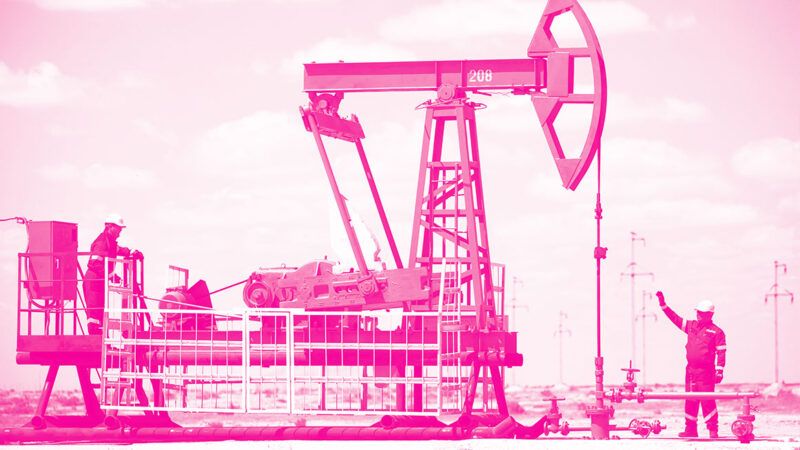Kazakhstan Kleptocracy
Authoritarianism and abundant natural resources make a treacherous combination in Kazakhstan.

Reason's December special issue marks the 30th anniversary of the collapse of the Soviet Union. This story is part of our exploration of the global legacy of that evil empire, and our effort to be certain that the dire consequences of communism are not forgotten.
Kazakhstan stretches over 1 million square miles in Central Asia. It is richly endowed with oil, gas, and hard mineral resources. The country has 30 billion barrels of proven petroleum reserves, the 12th largest in the world, and produces some 1.8 million barrels of oil per day. Hydrocarbon output constituted about 70 percent of exports in 2020. Yet those vast natural riches have not stopped the country from slipping into kleptocracy.
As the last former republic to declare independence from the collapsing Soviet Union in December 1991, Kazakhstan was led for nearly 30 years by President Nursultan Nazarbayev. Nazarbayev stepped down in 2019 and was followed by his hand-picked successor, Kassym-Jomart Tokayev. But Nazarbayev retains the crucial post of chairman of Kazakhstan's Security Council and remains head of the ruling Nur Otan ("Light of the Fatherland") political party.
Analysts suggest that foreign direct investment and links to Western natural resource companies might help moderate corruption in countries like Kazakhstan. But authoritarianism and abundant natural resources are a treacherous combination. In a 2020 article, University of Richmond political scientist Sandra Joireman and her colleagues found that "the institutional reforms we would anticipate because of [economic] linkages have not occurred and those that exist are often cosmetic" in Kazakhstan. The authors suggest that Western companies "are willing to engage in 'commerce under anarchy' and even risk governments seizing property if returns from the investment are high enough."
Nazarbayev established a "neopatrimonial regime," George Washington University international affairs professor Sebastien Peyrouse wrote in 2012. Such regimes can "differ depending upon whether they emphasize political elements (patronage, paternalism, arbitrariness, weakness of institutions, and misuse of public office) or economic ones (endemic corruption, the kleptocracy of the established elite, management of national wealth as private property)," but Nazarbayev's combines elements of both.
Offshore accounts of Nazarbayev family members are estimated to amount to as much as $10 billion. A 2020 Radio Free Europe/Radio Liberty report identified $785 million in foreign real estate holdings by the family. Nevertheless, Kazakhstan's economy has nearly tripled since its post-Soviet low in 1995, even as Nazarbayev's cronies have enriched themselves in dubious ways. GDP per capita has similarly tripled.
The country's individual rights record is less impressive. Out of the 162 countries evaluated in the Cato Institute's 2020 Human Freedom Index, Kazakhstan ranked 90th on personal freedom. In Freedom House's 2021 Nations in Transition report, Kazakhstan garnered a dismal 1.32 out of a possible seven points for democratic progress.
In a March 2020 article, University of Lincoln political scientist Rico Isaacs warned that Nazarbayev's resignation might serve as "an exemplar for other post-Soviet authoritarian leaders to follow whereby they give up the office of president, but not power." Thirty years after the fall of the Soviet Union, it seems Kazakhstanis will have to keep waiting for meaningful democratic reform.


Show Comments (21)